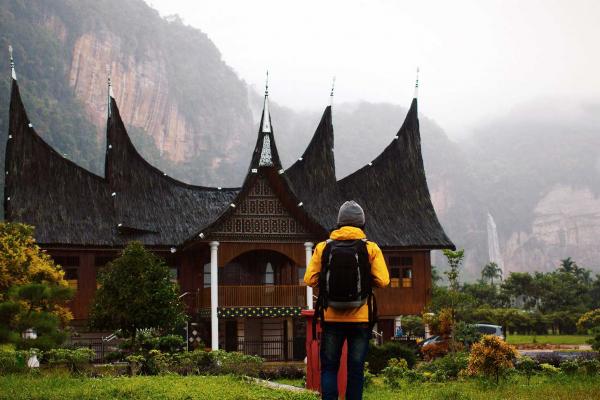It's a balmy August morning and I wake up to the sounds and scents of Paris; the Vespas zooming through the narrow quarter, the warm, freshly baked bread from the boulangerie, and the clinks of wine glasses from the streetside café.
I rise and wander through the two-bedroom flat that I have all to myself. I pour myself an orange juice, sprinkle some food into the fishbowl for my tropical little buddy that I’ve nicknamed Lord Fishington, open the balcony doors and allow the sunrays to slowly bronze my skin.
After my breakfast of soft, crusty baguette and black currant jam laced with lavender from Provence, I hop on a bike and cycle around the corner to L’Arc de Triomphe. My day will consist of photographing street art in Pigalle, browsing the antiques at the Porte de Vanves flea market, and grabbing a quick bite at trendy Point Éphémère tucked alongside Canal St Martin. All told, when my entire month in Paris comes to an end, it will have cost me less than €150 all-inclusive.
And the same can be said for all the many months I spent living in Montréal, Toronto, New York City, London, Surrey, Brussels, Amsterdam, Copenhagen, Berlin and Enkhuizen.
How? I have one word for you: Housesitting.
I had backpacked around the world for many years, but after settling down in one city for a while, my passport started hissing at me. As a freelance writer, I am completely mobile—I can work from anywhere as long as I have a Wi-Fi connection and a cup of coffee. The only problem was accommodation. Seeing as how my income was limited, I found Airbnb’s prices to be exorbitant, and the thought of staying in another hostel dorm full of farting frat boys unappealing.
Then I remembered all those times housesitting for friends and neighbours. I had looked after their pets, collected their mail, watered their plants and kept their homes occupied for insurance and security purposes. In exchange, I received a place to stay rent-free. Surely I could do this on a grand scale?
It turns out the Internet was on my side, offering a plethora of housesitting listings and opportunities.
Why housesit?
The most obvious benefit of housesitting is living rent-free, but there are so many more. (Personally, the biggest benefit for me is getting to spend time with pets; I love cat snuggles.) You will have all the comforts of home, like a full kitchen stocked with essentials. Many homeowners will let you use their bicycles to get around, and if you’re staying in a remote location, they might even let you use their car. Most of my homeowners have even lent me their topped-up transit passes so I can use public transport for free. I’ve also received petty cash and supermarket gift cards for my groceries. And yes, some homeowners will even pay you to stay. Of course, this is all at the discretion of the owner.
Most importantly, because you’re in a location for a long period of time, you get to know it the way the locals do.
Joining a housesitting site
There are several websites to choose from, which vary in the frequency of opportunities and locations, including TrustedHouseSitters.com, MindMyHouse.com and HouseCarers.com.
Most sites will ask you to pay an annual fee, which is a small price to pay for staying in a stranger’s home. After all, the annual fee is much less than paying for just one night in a hotel.
Next, you build yourself a profile, in the same way that you would build a Couchsurfing profile. Talk about your interests, what you can bring to the job and post photos of yourself. If you have housesat for someone before, ask them to leave you a reference on your profile. The more references you have, the more you’ll show up in search results.
Setting up your first stay
From the start, outline your expectations and limitations to both yourself and the homeowner. Do you only want to stay in big cities or can you live remotely? How many pets are you capable of handling? Can you handle pets with medical conditions? Are you capable of mowing lawns? Can you afford the plane ticket? In the event that the homeowner asks you to cover utilities (which happens sometimes for stays of six months or longer), how much are you willing to pay?
Questions to ask the homeowner
It is really easy to get wrapped up in the excitement of housesitting, without really analyzing the situation. Misunderstandings between homeowners and housesitters can happen, so don’t be afraid to ask lots of questions.
For example, on a few occasions, there were emergencies where pets needed to be rushed to the vet. Make sure you have full emergency and veterinarian contact information before your stay begins. Do you know how to control the heat? What if you blow a fuse? What day is garbage day? What is the WiFi password? These are all things you need to ask and more.
Finally, the best way to secure back-to-back stays is to be flexible, and not too finicky about where you’re going next. With an open mind and sense of adventure, you can make any small town or chaotic big city a truly wonderful experience.
This article originally appeared in the Fall 2015 issue of Verge.
Add this article to your reading list




